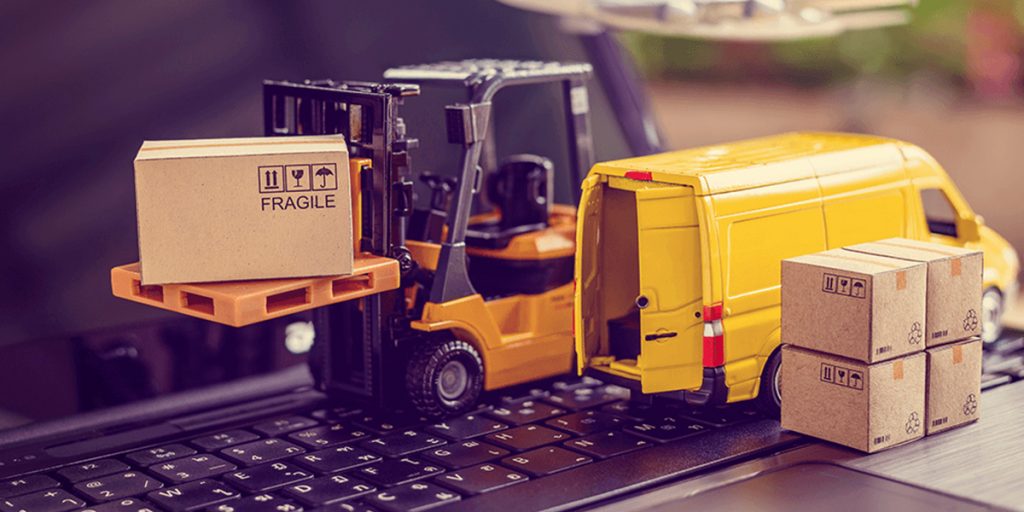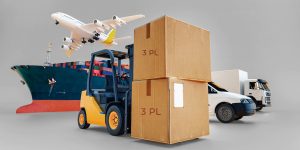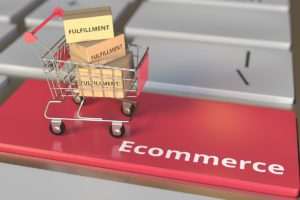Congratulations on the successful launch of your new online store. Once you’re up and running, it’s time to think about order management, which includes storing inventory, packaging products, and shipping orders to the customer. This is where eCommerce order fulfilment comes in.
Don’t fret. 3PL e-commerce fulfilment UK isn’t nearly as difficult or complex as it sounds, and you don’t need a logistics background to start. If you are serious about fulfilling and shipping your eCommerce orders, you need determination and this beginner’s guide.
What Challenges Do Ecommerce Businesses Face?
Any eCommerce business faces the challenge of competition. An order fulfilment strategy itself is not the only factor to consider. There are several other considerations when it comes to planning and executing it. In today’s eCommerce world, businesses face the following challenges:
- Product selection: The fate of your business depends on what products you decide to market in the face of so much competition. You must select products with high demand and little competition for a decent profit margin.
- Targeting your audience: Great products are useless unless you can reach the people who will buy them. You can increase sales by identifying and reaching your target audience with a marketing strategy.
- Traffic generation: It is extremely important to generate traffic to your website. Otherwise, you won’t sell anything. Depending on your industry, conversion rates vary, so you’ll have to put a lot of effort into generating leads.
- Actively engaging with email subscribers: Routinely engaging with your subscribers is key to maintaining a successful list. Even though only a fraction of your email subscribers will become paying customers, make sure you offer as much value as possible (e.g., promotions, coupons, or exclusive content) to maximise your chances of converting your emails into sales.
- Turning shoppers into customers: A great way to close a sale is to drive traffic and maximise your leads. You want shoppers to choose you over your competitors among the dozens of other retailers. How can you differentiate yourself from the competition?
- Incorporating the right technology: Every online business relies on technology, and choosing the right technology is essential. Invest in technology that can streamline and automate your business’s different aspects so that costs can be reduced, and accuracy can be improved, real-time insight can be provided with increased efficiency.
What is involved in eCommerce Order Fulfilment?
Any best eCommerce fulfilment services for online orders involve picking orders from shelves, packing them into boxes, and shipping them to their final destination. eCommerce fulfilment consists of six basic components:
- Inventory Management – The process of purchasing, storing, and utilising a company’s raw materials, components, and finished goods.
- Warehousing and Storage – Keeping goods in a warehouse for later use by storing them when not in use.
- Receiving – Receiving raw materials and inventory is the process of obtaining them.
- Pick & Pack – Gathering and packaging individual inventory items.
- Shipping – Delivering items from the warehouse to the end customer.
- Returns – Return damaged items to the warehouse for processing and reshipping after the customer has received them.
Online business order processing typically offers three eCommerce fulfilment options: in-house fulfilment, drop shipping, and third-party logistics (3PL). All have their advantages and disadvantages, which are simple to understand.
There is a tricky aspect to choosing the eCommerce fulfilment strategy that will be best for your company. The answer depends on the strategy that you have in place.
Strategies of eCommerce order fulfilment
Generally, the process of fulfilling orders is followed in three different ways across all industries daily. It can be helpful to formulate your strategy if you have a clear and basic understanding of each.
- Self-fulfilment:
The concept of self-fulfilment is exactly what it sounds like. Your responsibility is to ensure that you store, manage, deliver and take care of your products on your own to the end-users. It is an excellent idea to use this method if you are starting a new business and have not yet been able to find a warehouse or a distributing agent to handle your business. It is ideal to use this approach when shipping fewer than 100 items each month since it is quite economical.
Apart from being inexpensive, self-fulfilment offers greater control over the process and is easy to implement. However, a more comprehensive fulfilment approach that meets your needs will be much more beneficial if you plan to scale.
Despite self-fulfilment being easy and cost-effective, you cannot take advantage of economies of scale when you use self-fulfilment. The margins you can make under this method can severely hurt when you offer promotional shipping discounts.
- Third-party Logistics (3PL):
You can eliminate your fulfilment worries almost immediately by using third-party logistics services. With their infrastructure, a network of professionals and on-the-go shipping capabilities, they can meet any shipping need you have.
The services of a 3PL Manchester usually include inventory management, packaging, customs brokering, freight forwarding, cross-docking, etc., which can be challenging for individuals to handle alone. It serves as an extension of your business, relieving you of all the stress that comes with it.
The best 3PL for e-commerce service is ideal if you plan to scale your business soon. Moreover, you can gain access to more insight into data and industry experts to optimise your fulfilment process. However, finding a 3PL that aligns with your organisation’s mission and goals is challenging. You have to understand that there is a trade-off you have to make when it comes to potential growth. You are also inhibited from controlling the process as a result of them.
- Dropshipping:
With this method, you do not have to store the products on-site. Instead of receiving products from your suppliers, you will deliver them directly to your customers. You only need to keep a seamless communication channel between you and your supplier, and then you’ll be good to go in no time.
Dropshipping is a business model that requires a minimum amount of startup capital and has a low fulfilment cost. The best part is that you only have to pay for the products you sell. Maintaining regular communication with your suppliers is one of the best ways to ensure that inventory is updated on time.
It does, however, have some drawbacks. There is a loss of control over the shipping process, and your business depends entirely on the suppliers for the stock it needs. Since you cannot purchase in bulk, the margins on these products are also very low.
Furthermore, you are responsible for handling customer complaints directed at you. Your brand’s reputation can quickly deteriorate if your supplier provides you with faulty products.
Choose the right Strategies for Business.
Your business is ready to start considering which option is best for order fulfilment now that you’re aware of the different options. Even though most companies find the three most popular strategies mentioned in the previous section effectively, your business may benefit from combining different strategies and hiring eCommerce fulfilment providers. To avoid shutting down operations altogether, you should make the transition from one strategy to another as smooth as possible.
Final Thoughts
With advanced technology and omnichannel integration, 3PL Fulfillment handles all aspects of eCommerce fulfilment and streamlines logistics. Our fulfilment company is committed to providing a complete solution for optimising business growth through the solution of fulfilment, on-demand warehousing, and third-party logistics.Are you looking for 3PL Logistics companies in the UK and thinking of outsourcing your fulfilment needs to find eCommerce success? Reach out to us today.









